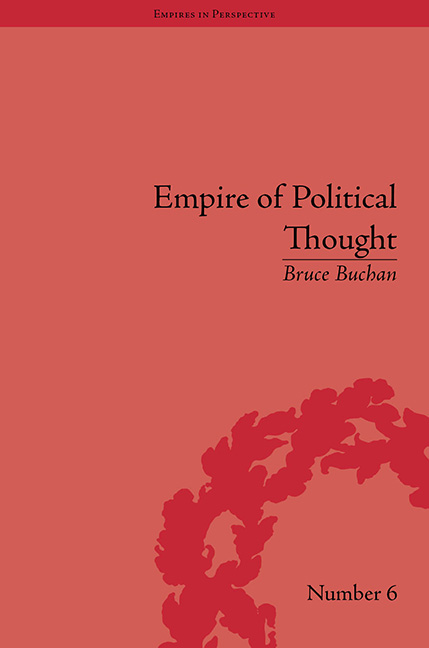Book contents
- Frontmatter
- CONTENTS
- Acknowledgements
- List of Illustrations
- Introduction
- 1 Savagery, Civilization and Political Thought
- 2 ‘Trafficking’ for Empire: Commerce, Consent and Colonization
- 3 Difficult Subjects
- 4 The Subject of War
- 5 Fit for Society
- 6 Liberalism, Self-Government and the Ethnography of ‘Primitive Society’
- Conclusion: After the Tide of History, Reconciliation?
- Notes
- Works Cited
- Index
6 - Liberalism, Self-Government and the Ethnography of ‘Primitive Society’
- Frontmatter
- CONTENTS
- Acknowledgements
- List of Illustrations
- Introduction
- 1 Savagery, Civilization and Political Thought
- 2 ‘Trafficking’ for Empire: Commerce, Consent and Colonization
- 3 Difficult Subjects
- 4 The Subject of War
- 5 Fit for Society
- 6 Liberalism, Self-Government and the Ethnography of ‘Primitive Society’
- Conclusion: After the Tide of History, Reconciliation?
- Notes
- Works Cited
- Index
Summary
Captain George Grey and Edward John Eyre shot to prominence in the 1840s on the back of their separate journeys of ‘discovery’, each made possible by their reliance on the knowledge of Aboriginal guides and trackers. Both publicized their successes very effectively in time-honoured imperial fashion, Grey in his Journals of Two Expeditions of Discovery (1841) and Eyre in his Journals of Expeditions of Discovery (1845). Both journals provided the platform for their elevation to the ranks of colonial administration – Eyre as a (highly esteemed) resident magistrate at Moorundi (in South Australia) and subsequently as (highly controversial) Governor of Jamaica; Grey as Governor of South Australia, and subsequently Governor of New Zealand (reappointed for a second term), and of the Cape Colony. Perhaps part of the reason for the success of both journals was that while they apparently confirmed the general pessimism about the prospects of ‘civilizing’ Australia's Indigenous peoples, they sought to provide an analysis of why. In doing so, they both gave voice to a sense that Australia's Indigenous people lacked the capacity for society.
Grey was willing to concede that the Indigenous tribes possessed some ‘social habits’, engaged in ‘social intercourse and conversation’, and even had ‘institutions’. But both Grey's and Eyre's journals confirm that whatever ‘social habits’ the Indigenous people possessed they did not have any kind of recognizable ‘society’. Eyre, for instance, who also incorporated the observations of Grey and the South Australian Protector of Aborigines Matthew Moorhouse, spoke of the present inability of a supposedly ‘savage’ people for making ‘social ties and connections’ because the power of the elders drives them back ‘among the savage hordes’. What distinguishes these ‘hordes’ from ‘society’ was the fact that the former did not possess ‘any form of government’ and any member of the tribe ‘is at liberty to act as he likes, except, in so far as he may be influenced by the general opinions or wishes of the tribe …’.
- Type
- Chapter
- Information
- Empire of Political ThoughtIndigenous Australians and the Language of Colonial Government, pp. 119 - 140Publisher: Pickering & ChattoFirst published in: 2014

